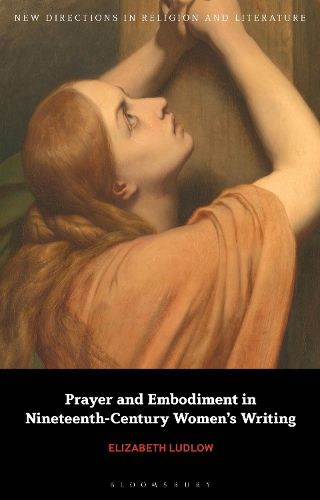Readings Newsletter
Become a Readings Member to make your shopping experience even easier.
Sign in or sign up for free!
You’re not far away from qualifying for FREE standard shipping within Australia
You’ve qualified for FREE standard shipping within Australia
The cart is loading…






In the 19th century, an era that saw a reconfiguration of the relationship between the self, the world and the divine, women writers probed the theological depths of embodied faith in new ways through poetry, fiction, devotional prose and life writing.
Elizabeth Ludlow explores how, through this process, they articulated what it means to pray, and thereby understand one's place in a world of individual and communal bodies. The eight women writers discussed - Elizabeth Barrett Browning, Josephine Butler, George Eliot, Elizabeth Gaskell, Dora Greenwell, Felicia Hemans, Adelaide Procter and Christina Rossetti - provide accounts of prayer that stress that the only way to experience and respond to something of the transcendent is through embracing lived experience and through a recognition of the connectedness of all bodies.
In detailing how these writers engage with new ways of thinking about faith, desire and the material world, Ludlow argues that they offer models for ethical modes of being in the world and pave the way for later theologies of embodiment.
$9.00 standard shipping within Australia
FREE standard shipping within Australia for orders over $100.00
Express & International shipping calculated at checkout
In the 19th century, an era that saw a reconfiguration of the relationship between the self, the world and the divine, women writers probed the theological depths of embodied faith in new ways through poetry, fiction, devotional prose and life writing.
Elizabeth Ludlow explores how, through this process, they articulated what it means to pray, and thereby understand one's place in a world of individual and communal bodies. The eight women writers discussed - Elizabeth Barrett Browning, Josephine Butler, George Eliot, Elizabeth Gaskell, Dora Greenwell, Felicia Hemans, Adelaide Procter and Christina Rossetti - provide accounts of prayer that stress that the only way to experience and respond to something of the transcendent is through embracing lived experience and through a recognition of the connectedness of all bodies.
In detailing how these writers engage with new ways of thinking about faith, desire and the material world, Ludlow argues that they offer models for ethical modes of being in the world and pave the way for later theologies of embodiment.